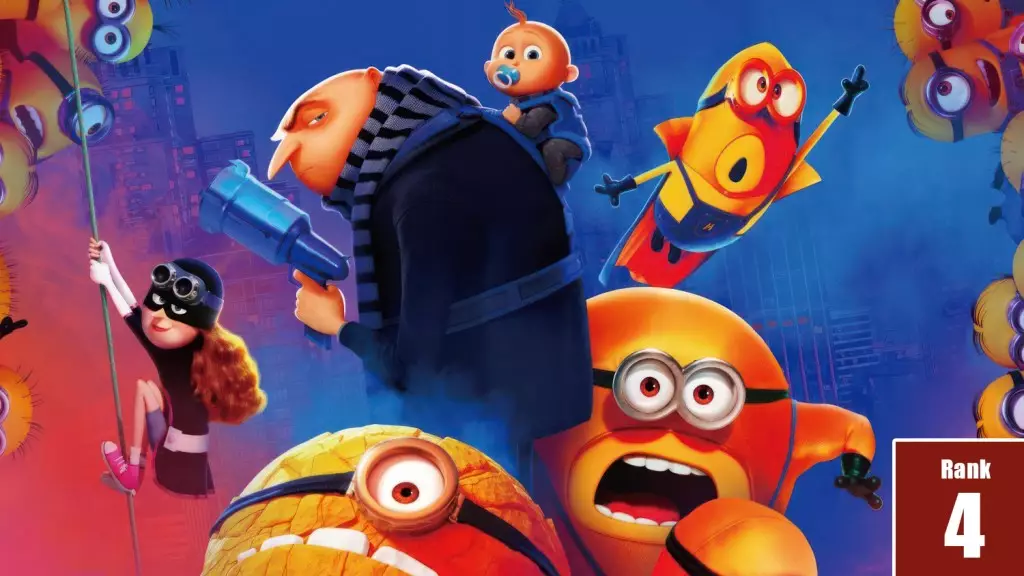In the ever-evolving landscape of cinema, the notion that a movie’s success is solely dictated by its box office performance is rapidly becoming outdated. Deadline’s Most Valuable Blockbuster tournament highlights not just the upfront earnings but delves into the multifaceted revenue streams that characterize modern filmmaking. It’s a breath of fresh air that acknowledges the theater as just a starting point in a broader financial playbook.
Streaming has emerged as a potential disruptor, changing how industry players evaluate a film’s longevity. Traditional studios—Disney, Warner Bros., and others—still heavily rely on post-theatrical earnings, but now we find ourselves in a landscape where platforms like Amazon and Apple can skew the narrative more than ever before. By excluding these giants from 2024’s assessment, Deadline poses an intriguing question: What happens when a film’s success evaporates in the face of an unseen metric used by streaming platforms? This could serve as a wake-up call, urging traditional studios to recalibrate their expectations or risk being left behind.
The Evolution of Animation: Despicable Me 4 Breaks Records
It’s no surprise that “Despicable Me 4” has smashed records, earning its place in the blockbuster hall of fame. This installment’s success—pushing the franchise past the monumental $5 billion mark—reinforces a vital lesson: innovation in familiar realms captures audiences repeatedly. By introducing new characters like baby Gru Jr. and enhancing Grus’ narrative arc with a rival, the creative team has ingeniously layered depth onto an established foundation.
Universal’s strategic coupling of heavy marketing with relatable pop culture moments—like NBA stars showing up dressed as Gru—amplifies the notion that effective advertising transcends age demographics. It’s about creating a brand universe that resonates and gets traction on social media. Yet, the price tag of $170 million for the marketing campaign raises eyebrows. Is this a sustainable investment strategy, or are studios deluding themselves about their target audiences’ behavior?
Reader Engagement: Are Studios Risking it All for a Moment of Virality?
The chorus of fans and the success of branding stunts like Funko and BTS pop-up stores might suggest that the industry knows what audiences crave. But I can’t help but question the long-term viability of these flashy, momentary marketing strategies. They hinge on ephemeral trends rather than a substantive connection with the viewer. At what point does quantity of viewership trump quality of storytelling and emotional connection? The industry must consider whether pursuing viral fame risks alienating loyal fans who desire a more profound narrative.
Additionally, it is worth scrutinizing whether the strategy of slashing production costs is too simplistic. While the $100 million production cost for “Despicable Me 4” seems commendable against a backdrop of inflated budgets, relying on such a lean approach runs the risk of creative stagnation. Studios are akin to savvy investors: the best results often arise from a willingness to invest not just financially, but also in originality. Sacrificing quality for marginal savings may yield negative long-term repercussions.
As the 2024 blockbuster landscape unfolds, we find ourselves at a significant crossroads. The interplay between theatrical releases and the burgeoning streaming culture is rife with contradictions, yet opportunities blossom amid the chaos. The success of “Despicable Me 4” raises more questions than answers, compelling industry veterans to reevaluate age-old beliefs about profitable filmmaking.
What mustn’t be overlooked, however, is the enduring reality that, even in this nuanced environment, a deeply resonant story remains the gold standard for sustained success. The vision of cinema create an experience that commands attention, affection, and loyalty is perhaps more pivotal than any marketing trend can dictate. It’s time we emphasized the narrative over the noise because ultimately, that’s what will define the future of entertainment.

